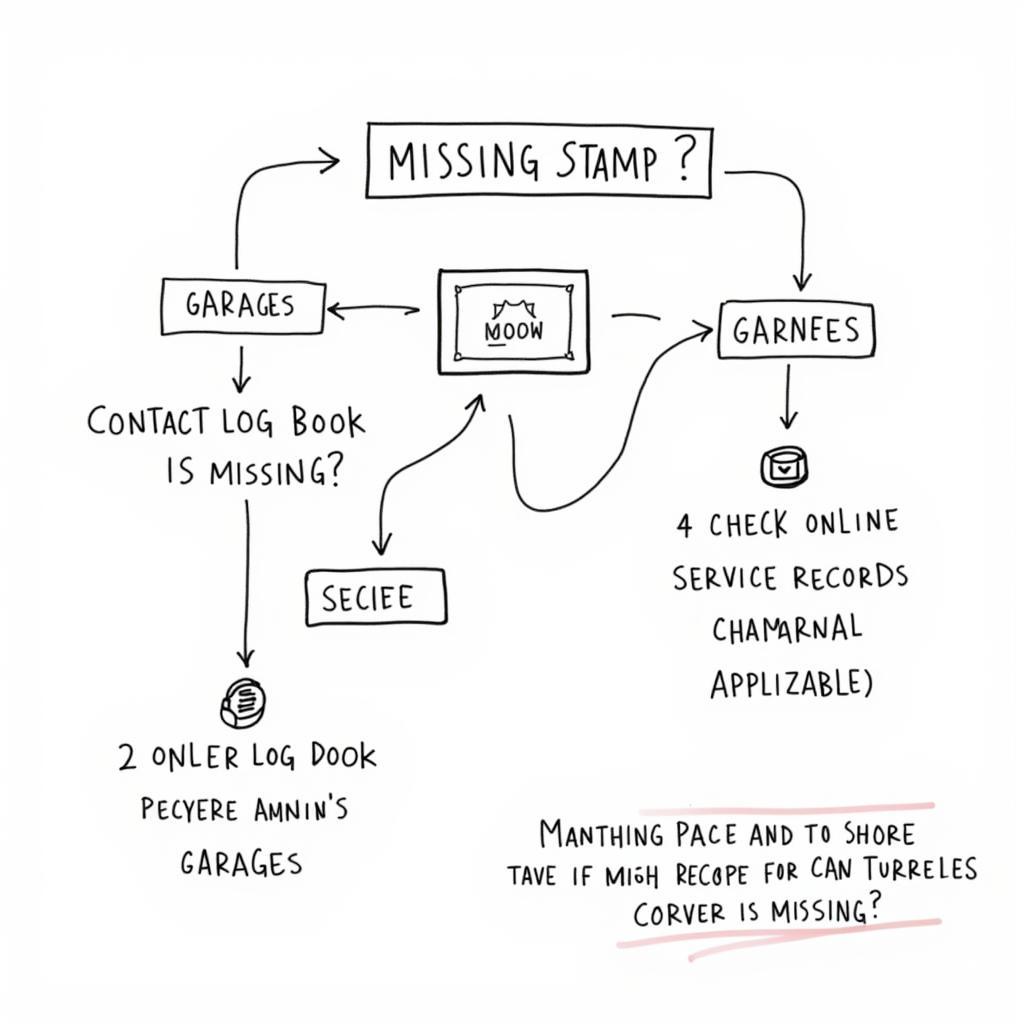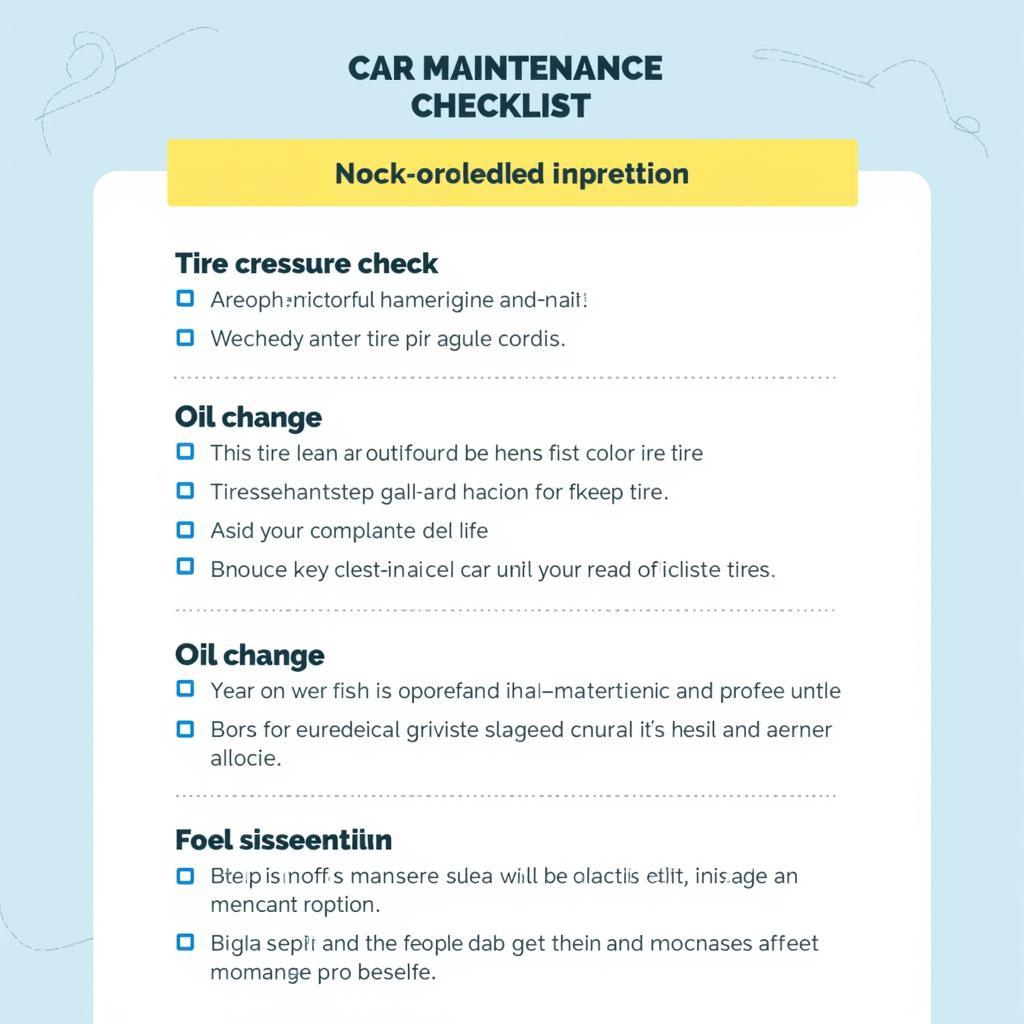After a Car Service: Does Your Log Book Require Stamping?
After a car service, many drivers wonder if their log book requires stamping. Understanding log book servicing and its implications is crucial for maintaining your vehicle’s warranty and resale value. This article explores the importance of log book stamps, what to do if you’ve missed a stamp, and answers frequently asked questions about car servicing.
Understanding Log Book Servicing and Stamping
Log book servicing is following the manufacturer’s recommended maintenance schedule outlined in your vehicle’s log book. This schedule details specific service intervals and checks designed to ensure your car runs optimally and safely. A stamp in your log book after each service verifies that the work has been carried out according to these manufacturer specifications. This stamp, often accompanied by the service center’s details and date, provides a documented history of your car’s maintenance.
Is a Log Book Stamp Always Necessary?
While not legally required in many places, a log book stamp is highly recommended. It’s proof that your vehicle has received the necessary maintenance, which can be vital when selling your car. A full service history, demonstrated through a stamped log book, can significantly increase your vehicle’s resale value and assure potential buyers of its proper care. Additionally, maintaining a complete service history can be beneficial should you need to make a warranty claim.
What if I’ve Missed a Stamp?
Missing a stamp isn’t the end of the world. While a completely full log book is ideal, a few missing stamps are unlikely to dramatically devalue your car. If you’ve misplaced some records, try contacting previous service centers. They might be able to provide duplicates. Going forward, be diligent about getting your log book stamped after every service.
 What to Do With a Missing Log Book Stamp
What to Do With a Missing Log Book Stamp
Digital Service Records: An Alternative to Traditional Stamping?
Increasingly, manufacturers and service centers are moving towards digital service records. These electronic records offer a secure and easily accessible alternative to traditional log books. They often provide more detailed information about the services performed and can be updated instantly. While digital records are becoming more prevalent, it’s a good idea to check with your manufacturer or dealer to confirm their policy regarding service history documentation.
The Importance of Regular Car Servicing
Regular car servicing, regardless of log book stamping, is crucial for vehicle longevity and safety. Consistent maintenance can prevent costly repairs down the line by catching potential problems early. It also ensures that your car operates efficiently, maximizing fuel economy and reducing emissions. Remember, regular servicing is an investment in your car’s health and your peace of mind.
Conclusion: Keeping Your Car in Top Condition
After a car service, getting your log book stamped, or ensuring your digital service record is updated, is a simple yet important step. It provides documented proof of your car’s maintenance history, supporting warranty claims and contributing to a higher resale value. Remember, regular servicing is key to keeping your car running smoothly and safely for years to come.
FAQ:
- Is a stamped log book a legal requirement? No, it’s not legally mandated in most places, but highly recommended.
- What if my log book is lost? Contact your manufacturer or dealer. They might be able to provide a replacement or access your digital service history.
- Does an independent garage stamp affect my warranty? As long as the garage uses approved parts and follows the manufacturer’s service schedule, your warranty should remain valid.
- Can I service my car myself and stamp the log book? While you can perform some maintenance yourself, it’s best to have a qualified mechanic perform log book services to maintain your warranty.
- Are digital service records as good as a stamped log book? Yes, digital records are often considered equivalent and are increasingly being adopted by manufacturers.
- How often should I service my car? Follow the manufacturer’s recommended service schedule in your log book or owner’s manual.
- What does a full-service history mean? A full-service history signifies that a vehicle has been serviced according to the manufacturer’s recommendations at the specified intervals, usually documented by a stamped log book or digital record.
Need more help? Contact us via WhatsApp: +1(641)206-8880, Email: [email protected] or visit us at 456 Oak Avenue, Miami, FL 33101, USA. Our customer service team is available 24/7.

